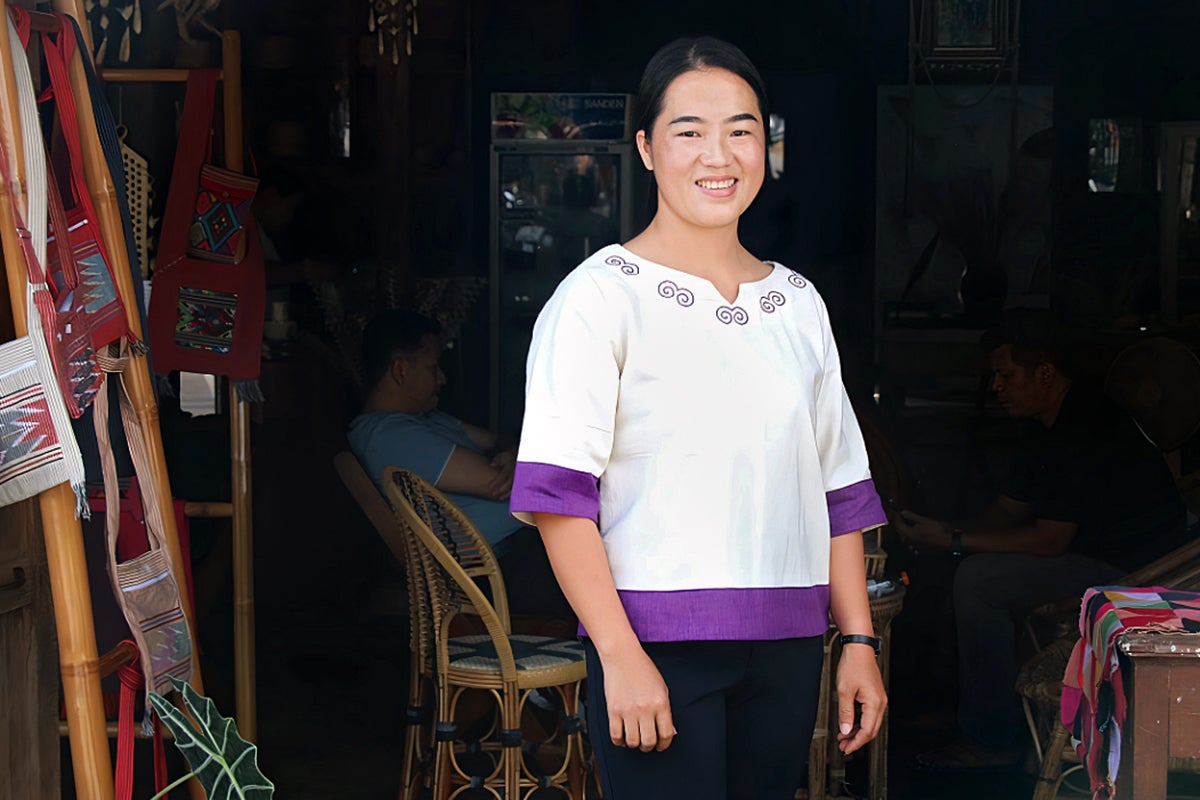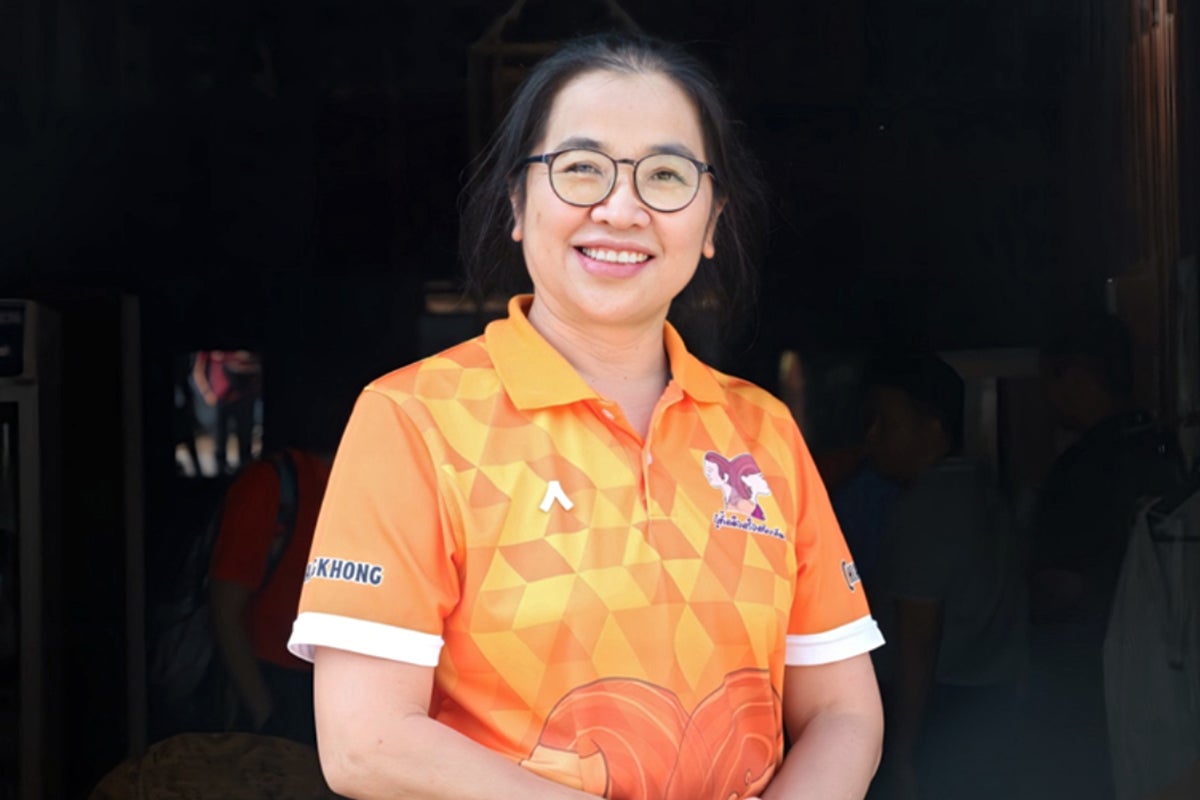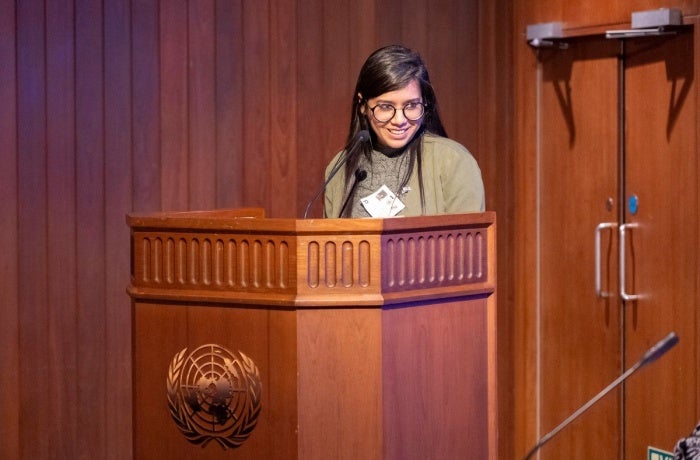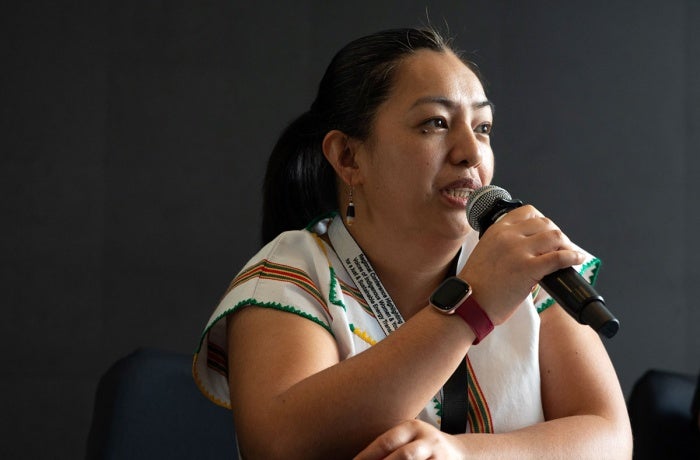Women learn new skills and push back against ethnic and gender prejudice in Thailand
“Understanding and acceptance of gender equality vary within the community”, says Hua Sae-Wue, a 29-year-old ethnic Hmong woman who lives with her husband and two children in Kiew Doi Luang Village, in northern Thailand.
“While it is possible to explain these concepts, older individuals may find them unrealistic and impractical, often adhering to traditional norms”, she said. “However, things are gradually changing for the better.”
Several years ago, Hua attended a workshop hosted by the Centre for Girls Foundation, a local women-led organization and UN Women partner that aims to help women learn skills and fight human trafficking.
“As someone with limited formal education, the experience has significantly broadened my perspective”, she said. “What I appreciate the most is the centre’s commitment to advocating for gender equality and empowering women to pursue their careers while encouraging them to stand up for their rights.”

After attending the workshop, Hua joined the Women’s Economic Empowerment and Learning Centre (WEE Centre), a programme supported by UN Women and funded by the Republic of Korea’s Ministry of Gender Equality and Family. There, she learned livelihood development and vocational skills, including soap making and sewing, as well as financial literacy.
“Sewing is the most significant change and it’s something I enjoy”, Hua said, adding that she hoped the craft could become her main source of income.
“I like coming to the WEE Centre because I’ve learned new things, met new people, and made new friends from different villages”, she added.
Nunnaree Luangmoy is a co-founder and adviser of the WEE Centre in Chiang Khong District, in the northern province of Chiang Rai. She founded the Centre for Girls Foundation in 1997, and ran it until 2012; the foundation now supports the WEE Centre’s work.
Since its launch in September 2023, the WEE Centre has provided services to about 350 women in Chiang Khong District.
“UN Women saw the importance of our work and has supported us to this day”, she said, adding that when UN Women began working with their programme, “we felt that our work was finally being acknowledged. It was like a dream come true.”

The centre helps women learn new skills or use their existing skills to better support themselves and their families. While some programme attendees are learning trades like sewing or making foot ware, others who already possess such skills can learn how to better market and sell their products.
By empowering women economically, Nunnaree hopes to push back on ingrained gender biases in northern Thailand. Women and girls in the region, especially members of ethnic minorities, struggle to access government services face social pressures that can stifle their economic and personal freedoms.
In the area where she grew up, Nunnaree said, “Girls often don’t go to school after sixth grade, as parents expect them to marry young, start a family, and do domestic work.”
In addition to the occupation training at the WEE Centres, Nunnaree launched the “Take Your Daughter Home” project to help women who want to divorce and reunite with their families, as well as programming to prevent child marriage.
“Women are discouraged from becoming leaders and married women are barred from returning to their parents’ home”, Nunnaree said. “Women are harmed by these beliefs, so we are advocating for change.”
She added, “My goal is for the women of Chiang Khong to build a strong and self-reliant community that can run the Centre and come up with activities that benefit women, their communities, and future generations.”









